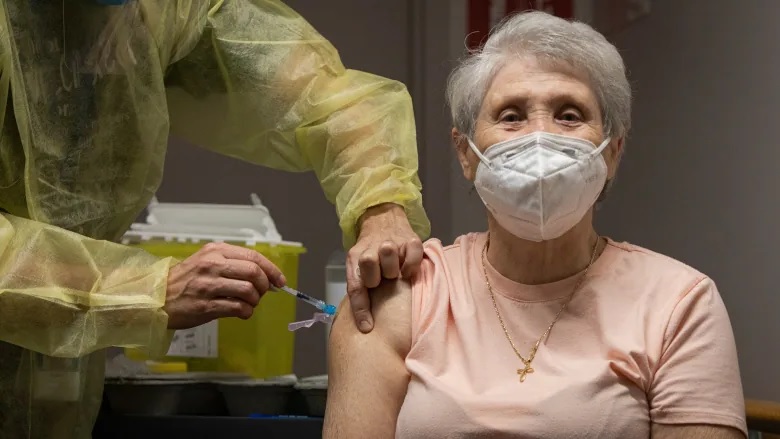As COVID cases grow–due mainly to the pressing presence of variants in our midst–Canada’s chief medical officer says the country has entered what she is calling a “challenging” phase of the pandemic.
“We need to give it our best effort right now because the vaccines need time to take hold,” Dr. Theresa Tam said Wednesday during a question and answer session with Canadians on Facebook.
“There’s many people who are not vaccinated right now in Canada, so I would say this period is one of the most challenging periods,” she said.
“This resurgence may not be the same as previous ones. We’ve now got variants that are more transmissible so there is less room for errors.”

Chief Public Health Officer Theresa Tam says the COVID-19 pandemic has reached “challenging” phase, and she is urging Canadians not to lose patience, saying that now is the time to follow public health guidance to give vaccines time to work. (THE CANADIAN PRESSAdrian Wyld)
Her comments follow a warning she delivered last Friday that Canadians face a “strong resurgence” of COVID-19 cases across the country if the more transmissible variants continue to spread and become more commonplace–as predicted by new Public Health Agency of Canada modeling.
Tam also said Friday that the expanding vaccination campaign across the country cannot keep pace with the rapid spread of COVID-19 variants and urged Canadians not to let their guard down.
On Wednesday, she was asked about officials ever-changing advice on vaccines.
“I think the fundamental challenge with this pandemic is that science, evidence and knowledge are always evolving and is emerging fast so we have to act fast to adapt and evolve the guidance,” she said.
On Monday, Canada’s National Advisory Committee on Immunization (NACI) changed gears on the AstraZeneca vaccine, deciding to not recommend it for people under 55 after reports of blood clots in Europe.
“As more and more vaccines are rolled out live to tens of millions of people, more data is going to come in,” said Tam.

Guerina Morra, 81, gets her first dose of the Pfizer-BioNTech COVID-19 vaccine at Caboto Terrace in Toronto on March 11. Experts say the confusion around vaccine safety recommendations is unfortunate given the number of unvaccinated seniors in Canada at risk of severe COVID-19 complications. (CBC/Evan Mitsui)
According to the CBC’s Peter Zimonjic, Tam told her audience that this summer is beginning to look like “hope” because the projections for vaccine deliveries suggest that every Canadian who wants to be vaccinated will have had their first dose by “probably around June, the end of June.”
Tam said the pace of the vaccine rollout suggests the country will be able to get every Canadian fully vaccinated with two doses of a vaccine by some point in the fall.
“I am looking forward to the fall, once everyone has had two doses of the vaccine, and that we would pass what I call the crisis phase of the pandemic,” she said.
Tam said she expects the country can begin to get back to something like normal by the time “the leaves start changing colour” — providing nothing else goes wrong.
“Of course, this virus is very good at giving us surprises so we’ll be watching its evolution and the variants very carefully. But I definitely have hope,” she said.
With files from CBC News (Peter Zimonjic), The Canadian Press (Morgan Lowrie)







For reasons beyond our control, and for an undetermined period of time, our comment section is now closed. However, our social networks remain open to your contributions.